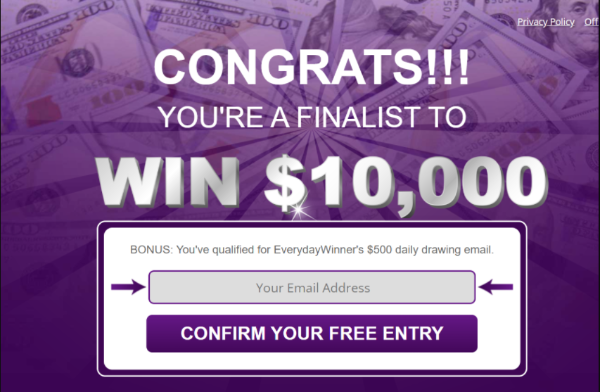
SAN DIEGO — Dalen Terry, a starting guard for the University of Arizona’s top-seeded team in the N.C.A.A. men’s basketball tournament, told reporters this week that it was “a dream come true” to see his name on the back of jerseys being sold in the campus bookstore.
“I’ve been thinking about this ever since I was younger,” he said. “Just having somebody else wear my jersey.”
What Terry did not realize then about the licensing agreements that became allowable ahead of this basketball season was that one of his opponents on Sunday night, Chuck O’Bannon Jr. of Texas Christian University, is the nephew of Ed O’Bannon, whose antitrust lawsuit against the N.C.A.A. was central to the winding road toward more rights and opportunities for college athletes to make money from their fame.
It was only last summer that the N.C.A.A., pressured by a handful of statehouses, relented on its longstanding policies that kept players from earning money from endorsements and other deals.
And although the issue has become front and central for many college athletes, Chuck O’Bannon Jr. said in an interview that many of his competitors did not know about his family’s ties to its history.
“Honestly, I don’t even think many of my teammates know,” said O’Bannon, 23. “And if they do, they just found out.”
Ed O’Bannon starred along with Chuck’s father, Charles, on U.C.L.A.’s championship basketball team in 1995, winning national player of the year honors while anchoring the Bruins’ last title run. Ed O’Bannon’s lawsuit, first filed in 2009, challenged the usage of his likeness for a college basketball video game and other moneymaking ventures for college sports that generated sales well beyond his time in the sport.
Dive Deeper Into the N.C.A.A. Tournaments
As Ed O’Bannon became a powerful symbol for athletes seeking to change the dynamics of college sports, the industry itself ballooned into a billion-dollar behemoth, thanks in part to television rights deals for men’s basketball and football that increased revenues for university athletic departments.
For the younger O’Bannons, the lawsuit became necessary family curriculum.
“When I was young, he explained it to me, that if somebody is trying to use your image to make money, you should get paid off of that,” O’Bannon Jr. said of his uncle. “He told me how they did it with him but he didn’t make any money.”
Charles said that early on in the legal fight, he and Ed spoke about the possible effect it might have on Chuck, especially as he worked toward becoming a college athlete.
“It hurt Ed when he was trying to get into the coaching game. It made it a little difficult for some coaches to put him on their staff,” said Charles, 47, who spent two seasons with the Detroit Pistons. Ed O’Bannon also played two seasons in the N.B.A., with the New Jersey Nets and the Dallas Mavericks.
“He didn’t mind taking one for the team, but we didn’t think it would happen this soon and that his nephew would be able to profit off of it,” Charles added in an interview.
Ed O’Bannon, 49, said in an interview that he believed his legal fight affected the prospects for his nephew as well as his daughter, Jazmin, now 25, and his son, Edward III, now 23.
“When all three were coming up through the ranks at the high school level, that was the meat and potatoes of my lawsuit,” said Ed, whose daughter played basketball at the University of Nevada-Las Vegas and whose son is pitching at a small college in Texas. “I think they suffered the consequences of the lawsuit, specifically my kids. They weren’t recruited as much. And it was hard for them to deal with. I honestly don’t know how Junior dealt with it. But I know I gave my kids specific orders to stay away and not comment on social media. Stay away. Do your thing. This is my fight.”
Still, Ed believes his children have moved on and that “it’s over, as far as I am concerned, my portion of the fight.” He is also glad that his nephew is thriving in college basketball.
“They are living their lives to the fullest. And me as a dad and uncle, I couldn’t be more proud,” Ed said.
Chuck O’Bannon Jr. has played in 32 games for the Horned Frogs this year and leads the team with 41 3-pointers. Growing up and hearing stories about U.C.L.A. basketball and watching videos of Bruins games with his father stoked his passion. Living in Japan from the ages of 2 to 14 while his father played professionally there furthered his education.
“It helped me be more diverse with everything that I did,” said O’Bannon, who played three seasons at the University of Southern California before transferring to T.C.U.
The O’Bannon family has always moved to the beat of a bouncing basketball. They once focused on Ed, Charles and U.C.L.A., and now the gyms and generations have changed while the enjoyment of the game has not.
“It’s been a blast to watch him play, and not only in the tournament, but throughout the season,” said Ed O’Bannon, who now works as a juvenile probation officer for Clark County, Nevada. “To watch him develop and really find himself as a basketball player. And find that confidence that we all know he has deep inside.”
Said Charles: “Talking with my parents about how proud they were watching me and Ed go through our U.C.L.A. run, I’m getting those same feelings and goose bumps on this side of it. A proud parent. Watching Chuck do his thing and interacting with the other parents, there’s nothing better than that.”
When T.C.U. defeated Seton Hall on Thursday night, it was the school’s first N.C.A.A. tournament win since 1987. And it has been clear throughout the first weekend of the bonanza known as March Madness that a new era has taken shape in college sports from the days when Chuck’s father and uncle soared for U.C.L.A.
Arizona’s Terry, upon learning about Ed O’Bannon during an interview, smiled and exclaimed, “Well, thanks, Uncle Ed.”





No comments:
Post a Comment